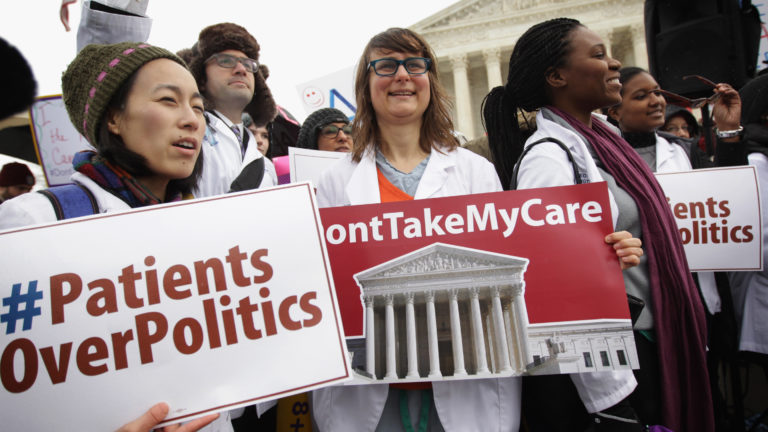As administrations change, so do policies that citizens rely on. As President Trump begins his second term, he has introduced controversial healthcare orders and appointments. One major change is cutting funds for Medicare and Medicaid. Additionally, Trump appointed Robert F. Kennedy Jr. as secretary of health, shifting the political health landscape. In the process many healthcare policies that help racial minorities are being threatened.
The U.S. is one of 122 countries without universal healthcare (UHC). According to Visual Capitalist, “In 2024, 73 of the 195 countries worldwide had UHC, resulting in around 69% of the world’s population having some form of universal healthcare.” Healthcare policies in the U.S often involve both private and federal organizations, leaving citizens vulnerable to political influence. Trump’s administration has tightened healthcare polices, disproportionately affecting minorities by threatening race based funding and programming.
Robert F. Kennedy Jr. has made controversial claims about immunization health and race. During his Senate appointment confirmation, Maryland Senator Angela Alsobrooks pointed out that he once said, “We should not be giving black people the same vaccine schedule that’s given to whites because their immune system is better than ours.” Alsobrooks warned that such misinformation endangers children and misleads parents. Prince George’s County, a majority-minority community, could be directly impacted by misguided federal healthcare mandates. ERHS, one of the county’s most diverse high schools, may also feel these effects.
ERHS nurse Civonna Johnson, who works with adolescents, believes these Medicare and Medicaid policies could limit student access to reliable healthcare, stating they should “help our most vulnerable populations: the elderly and young teens.” She also noted that Trump’s immigration policies may make students hesitant to seek government-funded healthcare. Junior Esther Obisesan calls RFK’s thoughts on immunization “ludicrous and detrimental to equitable healthcare,” arguing that healthcare should be “universal to all despite ethnic background or race.”
Republicans often support conservative policies, while Democrats advocate for equity and inclusion. Reckless cuts and policies not only marginalize minorities but also reinforce healthcare access as a privilege for the wealthy. In addition to healthcare cuts, DEI has faced growing negativity, affecting federal healthcare programs and who uses them. Alsobrooks warns that misinformation about healthcare is dangerous, especially for minorities with limited access to education, increasing their vulnerability. Cutting healthcare funding can drive up poverty and illness, creating a wellness disparity. Healthcare should be a right, ensuring all citizens have a fair chance to succeed without health barriers



